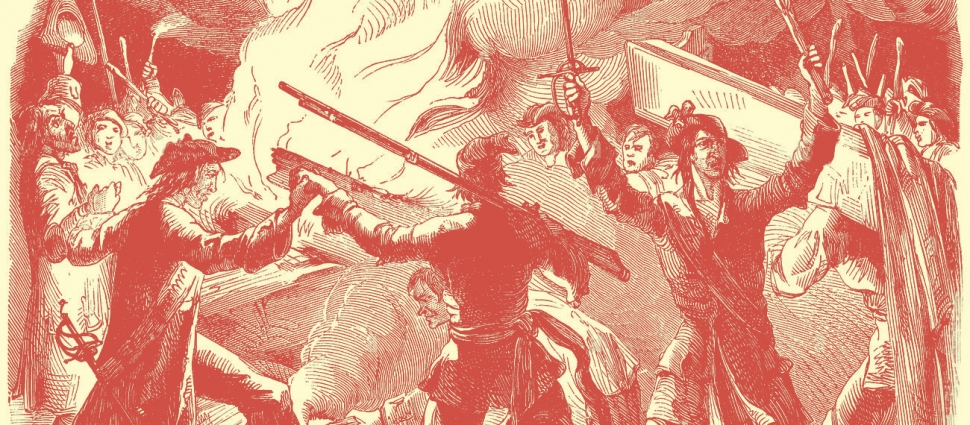Ecclesial Disobedience

While civil disobedience may sometimes be acceptable in the socio-political sphere, ecclesial disobedience (especially on the part of church officers) is only justified in the most extreme cases. If defying or ignoring church law makes a sort of sense in congregationalism (where the majority/mob rules) or in an episcopal structure (where unjust and arbitrary rule may easily flourish), it makes no sense in a well-ordered, biblically-faithful presbyterian church.
Presbyterians, who believe every square inch of church life ought to be decent and orderly, have processes for enacting and changing church laws. Following those laws (or rules, if you will) is never optional. Loophole finders, envelope pushers, and “creative” compliers are (or ought to be) frowned upon in presbyterian establishments. Being an orderly, law-and-process-bound bunch does not equal a Pharisaical legalism that finds ways to just honor the letter of law while trampling its spirit.
Taking the Pharisaical line (“Well, it doesn’t say we can’t do X so we can!”) and employing endless qualification and linguistic gymnastics is a normative approach where that which is not strictly prohibited is allowed. Presbyterians famously espouse a regulative approach to worship in particular. Church government ought to have a regulative principle as well, and that principle ought to honor the letter and the spirit of its biblical standards and the Bible. A regulative principle of church government requires compliance and submission, both to fellow elders and courts of the church, and to the standards.
Indeed, presbyterian officers (and thus the courts they inhabit) take vows to be regulated by the standards of their communions. In the PCA, for instance, officers vow at ordination that they “approve of the form of government and discipline of the Presbyterian Church in America, in conformity with the general principles of biblical polity.” Officers also “promise subjection to (their) brethren in the Lord.” And even though the PCA (for the last two decades) may almost-routinely allow exceptions to a few points of doctrine in the Westminster Confession and catechisms, there is still no way to opt out of the Book of Church Order. No room is given for ecclesial disobedience. Or is there?
There is the written, vowed-to law of the church. There is also the disorderly and subjective law of what is allowed. Laws flouted and violations unprosecuted over time lead to a sort of episcopacy—not of a person, but of a pontiff we may style Pope Precedent the Last. Just like other papists, those ruled by Pope Precedent the Last point primarily to tradition, even if that tradition is quite young and local. Many of those appealed-to precedents fall far short of “We’ve always done it this way.” Decisive, authoritative “tradition” can rest on cases as thin as Someone somewhere was allowed this practice…or at least was never convicted for it! Ironically, Pope Precedent the Last (though thoroughly episcopal) has friends who are as biblicist as the rankest congregationalist—many precedent setters rely on a single verse (or word) to justify ecclesial disobedience.
Thus, laws unenforced lead to no law at all or to new laws—laws arrived at not by careful deliberation but by shrug and slouch, by being worn down. This means the courts (by inaction or ignorance) can gut the very laws they rest upon and to which their members have vowed subjection and compliance.
Surely such a sad, un-presbyterian plague of lawlessness could never afflict a conservative, confessional presbyterian church in our day (especially in America), but if it did what might it look like? Well, one can imagine egalitarian cultural pressures and the expectations of expressive individualism pressing hard against a polity that requires churches to be governed by ordained officers, especially if only males can be ordained. Peace-loving presbyters might not find the will to correct creative workarounds like calling unordained persons officers, not ordaining some male officers because…equity, or making up quasi offices and playing with non-standard titles.
Similar pressures might tempt churches to claim that Paul was not really that clear after all about not allowing women to preach to the gathered church, at least occasionally. Some unordained persons are quite gifted, they might claim. The church would be deprived of a blessing, they might reason. Obviously, such a thing is hard to imagine in a biblical, confessional denomination.
More surprisingly, some churches might even struggle with respect to the qualifications of men for office. Very modern and previously off-limits sexual self-conceptions and ideas about sexuality might cause chaos and lead to much handwringing…and little decisive action. Even great helpings of nuance and hundreds, nay—thousands of pages of reports might be insufficient to quell the uproar and angst of simple-minded church members and local-church officers.
Finally, this unlikely scenario: A denomination that cherishes freedom (as opposed to uniformity) in worship might no longer be satisfied with a buffet of musical styles and flavor-of-the-decade liturgical license. Even the sacraments might be affected. Very young children might routinely be admitted to the Lord’s Table. The simple instructions of the Bible and the BCO on the way the Supper is to be served might be “improved” upon. Churches might even decide that immersion as a mode of baptism is just as good or even better than pouring or sprinkling.
But enough of this crazy talk. Presbyterians aren’t Anglicans, and certainly not baptists. Presbyterians are Presbyterians, and Presbyterians follow their rules.
Right?
Brad Isbell is a ruling elder at Covenant Presbyterian Church (PCA) in Oak Ridge, TN, co-host of the Presbycast podcast, and board member of MORE in the PCA.
Related Links
"The Necessity of Preaching" by Ryan McGraw
"Preaching for the Broken" by Mark Johnston
"Brothers, Ordain Your Deacons" by Adam Parker
"The Supremacy of Christ" by Sarah Ivill
Reformed Preaching by Joel Beeke
Why Johnny Can't Preach by T. David Gordon




